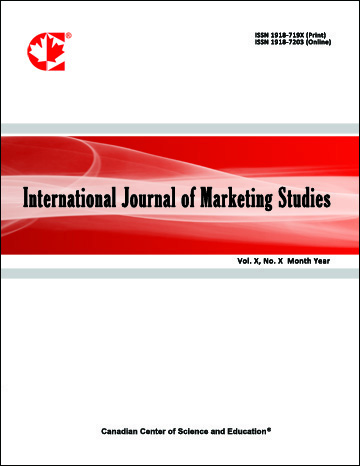Long-term Orientation, Perceived Consumer Effectiveness, and Environmentally Conscious Consumer Behavior: The Case of Turkey
- Misra Gul
Abstract
This paper analyzes the impact of long-term orientation and perceived consumer effectiveness onenvironmentally/ecologically conscious consumer behavior in the context of Turkey. Turkey is a collectivist,
high-context culture of significant geo-political importance with unique socio-cultural traits. The population is
young and natural resources are rich. In Turkey, environmental consciousness is a relatively less internalized
concept to which people are just recently beginning to adjust. All of this makes Turkey an interesting market to
study the environmentally conscious consumer behavior (ECCB) construct. Looking at the impact of long-term
orientation on ECCB is also one of the important contributions of this paper since environmental consciousness
requires a long-term view of the world around us. Building upon the adaptation and extension of past research in
the area, data are collected from 97 respondents, 80 per cent of whom are undergraduate college students, and
analyzed through commonly used statistical methods. The measures used are similar to those used in previous
studies. Environmentally conscious consumer behavior measure is adapted from Roberts (1996b) and McCarty
and Shrum (1994). Roberts’ (1996b) perceived consumer effectiveness measure is used in the study. Long-term
orientation scale is adapted from Bearden, Money and Nevins (2006).
- Full Text:
 PDF
PDF
- DOI:10.5539/ijms.v5n5p24
Journal Metrics
Google-based Impact Factor (2021): 1.34
h-index (July 2022): 70
i10-index (July 2022): 373
Index
- Academic Journals Database
- CNKI Scholar
- EconBiz
- Electronic Journals Library
- Excellence in Research for Australia (ERA)
- GETIT@YALE (Yale University Library)
- Harvard Library
- IBZ Online
- Infotrieve
- JournalTOCs
- LOCKSS
- MIAR
- PKP Open Archives Harvester
- RePEc
- ResearchGate
- ROAD
- Scilit
- SHERPA/RoMEO
- Stanford Libraries
- UCR Library
Contact
- Alyssa SunEditorial Assistant
- ijms@ccsenet.org
